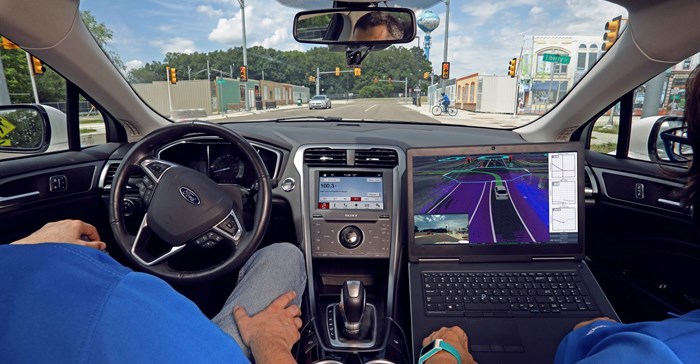
Top stories


Logistics & TransportIata urges global safeguards for aircraft systems as 5G/6G rollout continues
18 hours

AgricultureAgricultural exports from Africa are not doing well. Four ways to change that
Lilac Nachum 19 hours



“The impact of robotics and artificial intelligence on the way we get around – even in just the next five to 10 years – is enormous,” says Ken Washington, vice president of research and advanced engineering and chief technical officer, Ford Motor Company.
Washington explains that this move aligns multiple disciplines under one team for a more concerted effort to come to understand the potential for robotics and artificial intelligence. This includes a greater focus on evaluating new sensor technologies, machine-learning methods, technical requirements for entry into global markets, and the development of personal mobility devices, drones and other aerial robotics that can enhance travel.
The new team also serves to advance projects Ford is already working on – such as autonomous vehicles.
In February 2017, Ford announced a plan to invest $1bn during the next five years in Argo AI, a new artificial intelligence software company, which leads the development of Ford’s virtual driver system – the computer platform, sensors, and algorithms – for Ford’s first-generation self-driving vehicle program.

The new robotics and artificial intelligence research team will work concurrently with Argo AI and will be able to put greater emphasis on other developing uses of sensor technology and artificial intelligence, and how those developments can be used in autonomous vehicles.
The research team is able to use Ford’s research fleet to experiment with emerging sensing technology and try out new ways of leveraging deep learning techniques.
“This means you’ll likely see at least two separate fleets of self-driving vehicles on the road – one led by the Ford team, conducting advanced research, and another by Argo AI, developing and testing our virtual driver system for production,” explains Washington.
The potential for autonomous vehicle technology to transform society means there’s heavy emphasis on its development, but automation and artificial intelligence can be applied in other ways as well. Ford is already using robotics in manufacturing and logistics, and the new research team will evaluate further advancements in robotics to assist in ergonomically difficult tasks.
Artificial intelligence also plays a big role as part of the car manufacturer's global data and analytic team’s support for sales, marketing and finance, so the team will look to spread the technology to drive smarter decision-making and more personalised experiences.